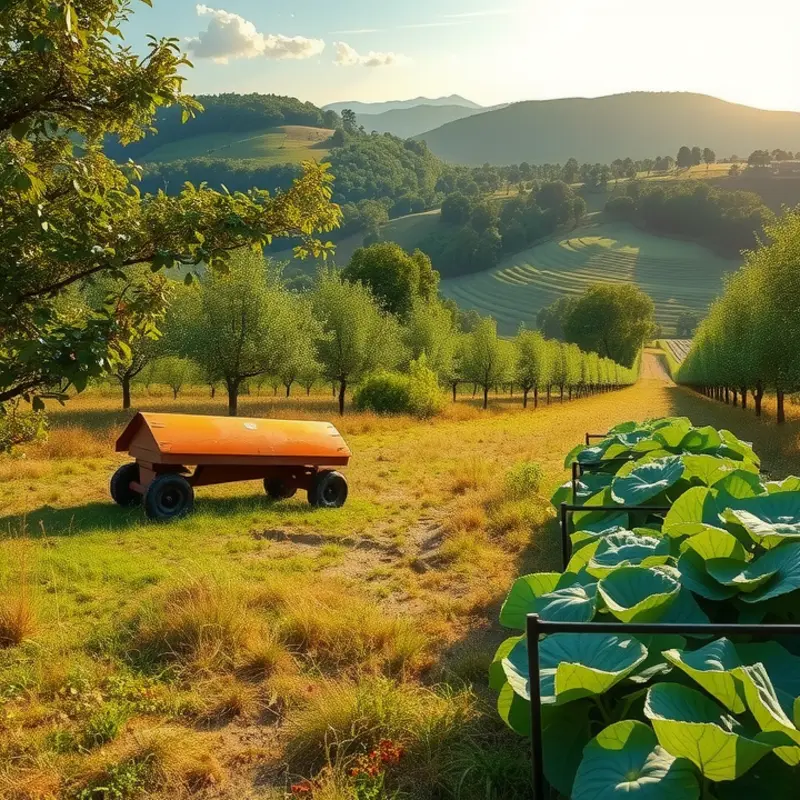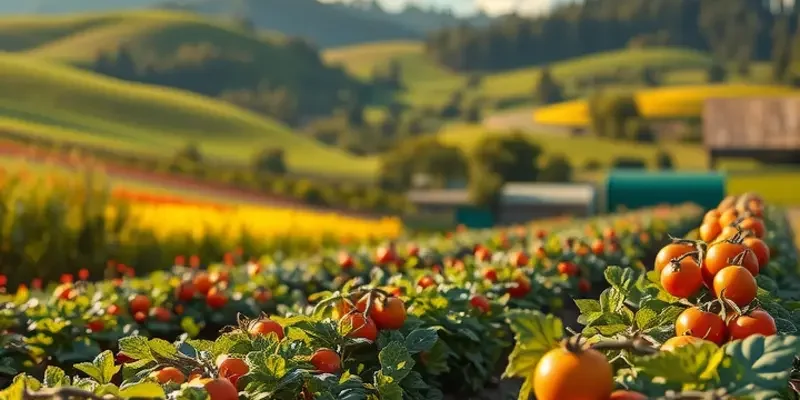As more consumers turn to frozen foods for convenience, the impact of these choices on the environment becomes critical. Selecting frozen options that align with eco-friendly values can decrease food waste, cut carbon footprints, and contribute to sustainable agriculture. This piece unpacks ethical considerations in frozen food selections, guiding environmentally-conscious individuals toward responsible consumerism for a healthier planet.
Decoding Labels: Understanding Sustainable Frozen Food

Navigating the myriad of labels on frozen foods can be daunting, yet understanding them is crucial for making eco-friendly choices. When processed responsibly, frozen foods retain both nutritional value and sustainability. By learning to decode these labels, we contribute positively to the environment and support ethical sourcing.
Certified Organic is perhaps the most recognizable label. It signifies that the product is free from synthetic pesticides and fertilizers. Organic certification requires rigorous adherence to natural agricultural practices, minimizing harm to ecosystems. By choosing certified organic, we reduce the chemical footprint on the planet, promoting biodiversity.
Another prevalent label is Non-GMO. Genetically modified organisms pose environmental questions, especially concerning biodiversity and the spread of modified genes to non-GMO crops. Opting for non-GMO products supports agricultural practices that preserve natural plant varieties and respect ecological balance.
Fair Trade is a label that extends sustainability into the socioeconomic realm. It ensures that producers in developing countries receive fair compensation, enhancing their communities and livelihoods. By purchasing fair trade frozen products, we contribute to ethical supply chains that respect human dignity and labor rights.
How do we discern authenticity in these labels? Look for certifications from reputable organizations and local agricultural boards. Trustworthy certifications often require periodic audits to ensure ongoing compliance with sustainability standards.
To aid your search for genuinely sustainable options, research brands known for transparent ethical practices. Engage with consumer reports or sustainability rankings. Brands committed to environmental impact will provide detailed insights into their sourcing and production methods, unlike those offering cursory information.
Lists of sustainable brands can often be found in dedicated sustainability forums and eco-friendly publications online. Engage with communities such as sustainable eating forums or ethical consumer groups for recommendations. Investing time in research enriches our ability to make informed choices that align with our values.
Additionally, leveraging eco-smart kitchen storage methods can maximize the benefits of sustainable frozen food. Consider reducing waste by employing energy-efficient storage solutions, which enhance the longevity and quality of your purchases. This practice not only aids in preserving food but also minimizes energy use, further contributing to sustainability. For more insights, explore eco-smart kitchen storage methods.
Understanding the terms and certifications associated with frozen foods empowers conscious consumption. As consumers, our choices have significant ramifications on both environmental health and producer welfare. By decoding labels, we uphold our commitment to an ethically sourced and environmentally friendly table, paving the way for a sustainable future.
Efficient Supply Chains: A Route to Sustainability

The frozen food industry is intricately dependent on supply chains that efficiently connect production with consumers, playing a crucial role in environmental sustainability. Understanding the significance of these mechanisms requires a closer examination of the transportation, packaging, and production steps, all of which can significantly impact carbon emissions.
Transportation, a key aspect of supply chains, often involves long-distance travel to distribute food across regions. Emissions from transportation are directly linked to the carbon footprint of frozen foods. Efficient logistical strategies like optimizing routes and employing eco-friendly vehicles can reduce this impact. Some brands are adopting rail and sea freight over road transport, capitalizing on their lower emissions per mile. Additionally, advancements in electric cold storage trucks are promising, as they mitigate the reliance on fossil fuels while ensuring food safety.
Packaging is another pivotal element. Traditional plastic packaging is often detrimental to the environment, with many materials being non-biodegradable, thus contributing to pollution. Eco-conscious brands are shifting towards biodegradable and recyclable packaging materials, recognizing the consumer demand for environmentally friendly options. Some innovative approaches include using plant-based materials or recycled content in packaging, offering notable environmental benefits while maintaining food safety standards.
The production processes in the frozen food industry also warrant attention. Energy-intensive practices can elevate a product’s carbon footprint. However, sustainable practices like implementing energy-efficient manufacturing processes and harnessing renewable energy sources contribute to reducing this impact. Some companies focus on ethical sourcing of ingredients, ensuring that their supply chain partners adhere to sustainable farming and fishing practices, which support biodiversity and local ecosystems.
Local sourcing is increasingly entering the conversation as a strategy to bolster sustainability in supply chains. By minimizing the distance food travels, companies can reduce transportation-related emissions. Additionally, sourcing ingredients seasonally aligns with more sustainable agricultural practices, as it reduces reliance on artificial growing conditions and the need for long-distance transport of out-of-season produce. Consumers can support this by choosing brands that prioritize local and seasonal sourcing.
Making conscious buying decisions is crucial for empowering consumers to influence sustainable change in supply chains. Opting for brands that highlight their commitment to reducing their carbon footprint through efficient supply chains can encourage more brands to follow suit. These efforts are not only an ethical choice but also a viable step towards ensuring a healthier planet. For more actionable insights on minimizing waste in the kitchen, consider exploring practical ingredient batching here. Together, these practices fortify the foundation for making eco-friendly choices that effectively support a sustainable table.
Final words
Navigating the world of frozen foods with a focus on sustainability doesn’t have to be daunting. By understanding labels, choosing brands committed to ethical practices, and embracing local produce, you can transform your meals into environmental victories. Remember, every choice—no matter how small—contributes to the broader efforts of sustainability. With a little research and conscious decision-making, you can enjoy the convenience of frozen foods while prioritizing the health of our planet. Let’s commit to making informed choices that resonate with our values.








